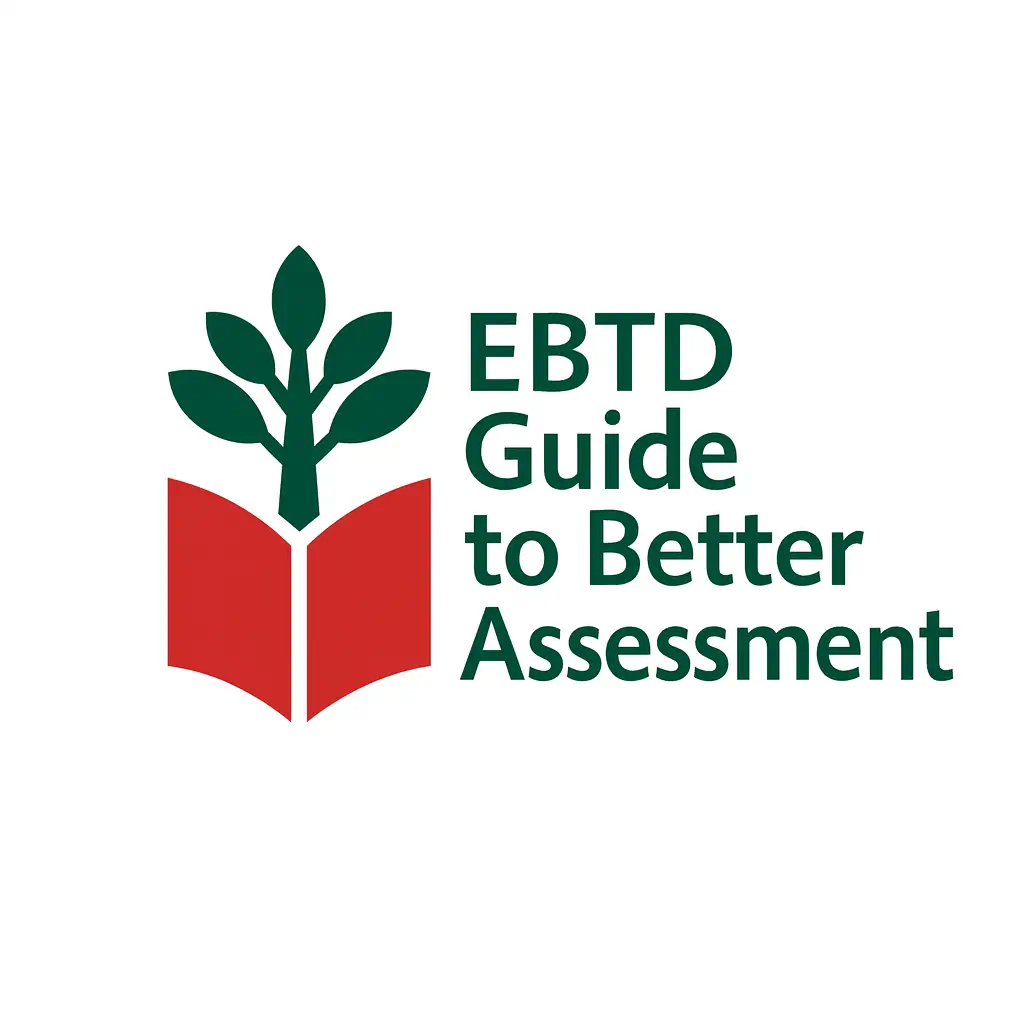
EBTD Professional Course: Developing Assessment Expertise
For teachers in Bangladesh who want to master assessment — from question design to data-driven teaching.
Why This Course Matters
Assessment is powerful only when evidence changes what happens next. Many teachers collect marks but lack time or tools to interpret them. This course turns the EBTD Guide to Better Assessment into practice — showing you how to design, analyse, and act on evidence to improve learning for every student.
Course Overview
- Format: Blended — six online modules + two in-person training days (Dhaka)
- Duration: 8–10 weeks
- Assessment: Classroom portfolio + reflection journal
- Accreditation: EBTD Certificate in Assessment Expertise
What You’ll Learn
Module 1: Alignment — Testing What You Actually Taught
Make every question purposeful and aligned to taught content. Avoid “topic drift”.
- Write items that match clear learning objectives
- Check alignment quickly with a one-page map
- Stop penalising students for content not taught
Module 2: Curriculum Progression — Building Questions Step by Step
Design sequences that mirror how understanding deepens: Recall → Understand → Apply → Reason → Transfer.
- Create progression ladders for your subject
- Use low-stakes checks to reveal developing mastery
- Avoid jumps that cause “nowhere to go” errors
Module 3: Construct-Irrelevant Difficulty — Test the Concept, Not the Language
Remove barriers that make assessments harder for the wrong reasons (complex wording, unfamiliar contexts).
- Write EAL-friendly stems without diluting rigour
- Audit items for readability and fairness
- Adapt contexts while keeping the construct intact
Module 4: Calibrating Difficulty — Finding the Sweet Spot
Balance accessibility and challenge to reveal genuine learning.
- Plan mixes of easy / moderate / challenging items
- Adjust cognitive demand with verb moves
- Spot when difficulty comes from noise, not knowledge
Module 5: Fairness, Purpose & Balance — Making Assessment Meaningful
Use assessment for learning and of learning; make inclusion a design principle.
- Design inclusive items for mixed-ability classes
- Blend formative and summative uses coherently
- Build a class culture of feedback, not fear
Module 6: Question Type & Cognitive Demand — Choosing the Right Tool
Match each type to the thinking it best elicits; write diagnostic MCQs that surface misconceptions.
- True/False for fast whole-class checks
- MCQs with misconception-based distractors
- Short Answer for reasoning; Extended Response for analysis
Module 7: Feedback & Next Steps — Turning Evidence into Action
Close the loop: interpret results, plan reteaching, and check impact.
- Sort work into secure / partial / confused patterns
- Give specific, action-focused, timely feedback
- Use mini-checks next lesson to verify improvement
Practical Classroom Tools
- Editable alignment maps & question blueprints
- Progression ladders and item-writing checklists
- Diagnostic MCQ templates with misconception banks
- Fairness/readability audit sheet
- Feedback planners (whole-class + targeted)
- BRIDGE reflection sheet to embed improvement through evidence
In-Person Training Days (Dhaka)
Day 1 — Designing for Insight
- Live item-writing labs (peer reviewed)
- Calibrating difficulty & aligning to curricula
- Building a topic assessment you can teach next week
Day 2 — From Evidence to Action
- Analysing scripts; mapping misconceptions
- Whole-class feedback plans + targeted next steps
- Action plan for school-based implementation
Outcome: You leave with a ready-to-use assessment unit and a practical “improvement through evidence” plan.
What You’ll Gain
- A practical toolkit for valid, reliable assessment in Bangladeshi classrooms
- Confidence to interpret evidence and adapt instruction
- Professional credibility as an assessment lead in your school
- EBTD Certificate in Assessment Expertise
How This Improves Outcomes
| For Teachers | For Students |
|---|---|
| Design fair, purposeful tests that reflect teaching | Experience assessment as learning, not punishment |
| Analyse patterns, not just grades | Know what success looks like and how to reach it |
| Give feedback that drives improvement | Gain clearer guidance and more confidence |
| Lead assessment conversations in school | Achieve deeper learning and sustained progress |
Next Steps
The course will open for pilot registration soon. To be notified when enrolment begins, sign up for the EBTD Newsletter or follow our updates on LinkedIn and Facebook.
“Assessment is not about labelling students — it’s about liberating learning.”
Continue Your Development
- Teacher Training in Bangladesh (BD)
- Integrated Teacher Development Award
- Leadership Training Bangladesh
- Tutor Training Programme
This course is part of The EBTD Guide to Better Assessment.
If you found this useful, join the EBTD newsletter for monthly, research-backed tips, free classroom tools, and updates on our training in Bangladesh—no spam, just what helps. Sign up to the newsletter and please share this page with colleagues or on your social channels so more teachers can benefit. Together we can improve outcomes and change lives.
